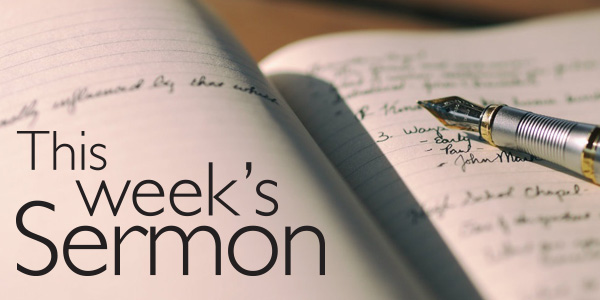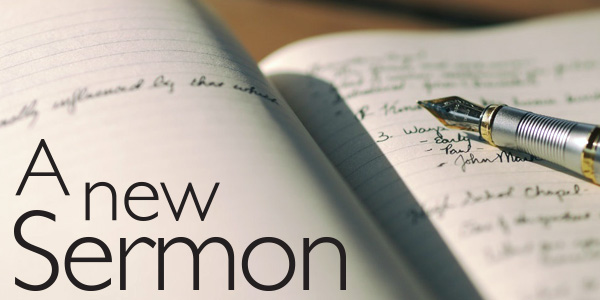What was Herod worried about?
6 January 2014 | Epiphany | Matthew 2:1-12
The Three Wise Men
Tonight we celebrate Epiphany – the last of the Twelve Days of Christmas. As many of you may already know, Epiphany is one end of a compromise on the date of Christmas made between the Church in the Western part of the Roman Empire, centered in Rome, and the Church in the Eastern part of that Empire, centered in Constantinople.
The debate over the date of Christmas was one of those “extremely important” theological debates which have too frequently occupied Christians since Jesus left the earth and was no longer available to help Christians focus. The compromise was that Christmas would be a twelve-day celebration, beginning with the celebration of the Birth of Jesus on the 25th of December and ending with the celebration of the Epiphany on January 6th. Just as the narrative of Jesus’ birth in Bethlehem has always been associated with the celebration of December 25th, so the story of the Three Kings has always been associated with the celebration on January 6th.
So tonight, we’re going to look at that story. The three kings, or wise men, came to Herod and asked him where the new Messiah, the King of the Jews, was being born. Herod wanted them to tell him where it happened. And when they didn’t, he ordered all the male babies born around Bethlehem to be killed.
Western tradition names them and describes the gifts they bring the infant Messiah: Caspar, from India, brings gold; Melchior, from Iran or Persia, brings frankincense; and Balthazar, from Arabia, brings myrrh.
The stories of the Magi are a rich part of the history of pre-Reformation Middle Eastern Christianity. The Italian merchant traveler Marco Polo claimed to have seen the tombs of all three kings near the modern city of Tehran around 1270 A.D. He said, “In Persia is the city of Saba, from which the Three Magi set out and in this city they are buried, in three very large and beautiful monuments, side by side. And above them there is a square building, beautifully kept. The bodies are still entire, with hair and beard remaining.”
My question to you tonight is, “What did Herod have to worry about?” Why should Herod have been afraid? If Herod were alive today, would he have anything to worry about from the daily prayers of the Richmond Hill Community, and from the Spiritual Guidance and Healing Prayer ministries of this place? Or, if you want to put it another way, why should Herod be at all concerned about a spiritual movement?
The secret is in the Kings. As anybody who plays chess or cards knows, Kings are the most powerful players. Only the Ace, God himself, beats the King in a card game. In chess, God has created the board, — the King is the top player.
The secret is in the Kings. And Herod knows that the three Kings have in their hands the secret of transformation, the alchemy of human change. They scatter the proud in the imagination of their hearts. They put down the mighty from their seat and exalt the humble and meek. They fill the hungry with good things, and send the rich empty away. That’s how Mary describes the transformation that God is bringing about in her song about Jesus, the Magnificat, in Luke’s Gospel. Here in Matthew’s Gospel, it is the three Kings who are carrying the gifts which make wrong right, which reorder human community from injustice to justice. They bring with them the three elements of human transformation: Gold, Frankincense, and Myrrh.
Gold, Frankincense, and Myrrh. These are the three avenues of the Holy Spirit’s transformation, and therefore, the avenues which our camels will inevitably follow if we are engaged in the ministries of healing prayer and spiritual guidance.
- Gold is the power on earth to control, produce, and distribute wealth.
- Frankincense is the power of worship and prayer.
- Myrrh is the power of death.
All three are primary arenas of the Holy Spirit’s transforming power.
1. Gold is the power on earth to control, produce, and distribute wealth.
Money talks. There is a Golden Rule of the world: Gold rules. Nations have always been ruled by the accumulation of wealth. Ancient kings held wealth. Wealthy people control kings. Controlling resources and wealth is a primary cause – often the primary cause – of all wars. Follow the money.
The only thing that transfers the control of human history by material wealth is spiritual transformation. When money goes someplace good that it doesn’t have to go, it is the work of the Holy Spirit of God.
Everybody has some Gold power – not just in what we own or can earn, but also through our power to affect legislation, or taxation. We can work on the distribution of wealth through public policy, although the greater the maldistribution of wealth, the more the wealthy use their wealth to accumulate more. For the Messiah, wealth is governed under the law of stewardship, not the law of possession.
You cannot serve God and Mammon – God and wealth. The earth is the Lord’s. The Messiah comes to establish justice. And when the Messiah has gone to heaven and the Holy Spirit is working his program, that’s what the Holy Spirit does. So if the spirit we’re working with is the spirit of Christ, it is going to teach us to be stewards of creation, to reorder our own use of resources and to make us warriors for the redistribution of wealth. Wealth used in the right way has power to transform.
That’s why Herod was scared. He wasn’t just mean. He knew he would lose his grandiose, inappropriate wealth and be asked questions of stewardship if there was proper spiritual direction. In a deck of cards, the king is the most powerful player unless the ace is present.
The kings worshipped the baby in the transforming power of gold.
2. Frankincense is the power of worship and prayer.
Frankincense is the ancient spice used in the anointing, the installing of kings. It is used in healing prayer. It is a sign of vocation, of God’s call, and of healing. And incense is the ancient sign of prayer. Where there is incense in the temple, there is prayer. In the Book of Revelation, there is this beautiful image:
When (the Lamb) he had taken the scroll, the four living creatures and the twenty-four elders fell before the Lamb, each holding a harp and golden bowls full of incense, which are the prayers of the saints. (Rev. 5:8)
The spirit of true prayer is the Holy Spirit of God. It is also the spirit of true worship. St. Paul says that the Holy Spirit of God is praying in us at all times with groans that are too deep to utter. When prayer fills a room, it can catch you up – the Spirit can speak in and through us. The spirit can be in conversation and discussion as well, — and in private prayer.
And when it is the Holy Spirit of God, it is a benevolent, wonderful spirit, which gives us a sense of possibility and hope and eternity that nothing else can give. In this spirit, all things are possible. We can see things we could not otherwise see. We can plan things we could not otherwise plan. Our attitude changes from defensiveness and hostility to vision, love, and hope. The holy spirit awakens in us the very mind of Christ. There is a sense of the power of God which truly transforms people and situations.
It is this moment of truth, this kneeling at the throne, that sent shivers into King Herod. Because in this kingdom, which is coming to earth, no injustice or hostility, no resentment or hatred, no guilt or shame, no oppression or terror is safe from the Holy Spirit of God.
The Spirit transforms the world, recreating it through the transformation of human hearts and minds just as the Ruach, the Spirit of God, “moved upon the face of the waters” (Gen 1:2) at the beginning of time.
No wonder Herod was afraid of the holy spirit! The kings worshipped the baby in the power of the incense of God.
3. Myrrh is the power of death.
The power of death is the power of destruction, of oblivion, of fear, and of time. Whereas Gold is the power of resources, death is the ultimate threat of nothingness. The fear of death motivates more strongly than any motivation – it is the instinct of survival.
Therefore, death represents the most powerful weapon for transformation. The threat of death is what despotic rulers hold over their subjects. The fear of death makes people hurt themselves and one another, stockpile material wealth, inflate selfishness, magnify racial hatred, and maintain systems of oppression. It blinds us to one another.
No wonder the myrrh, the secret of the transforming power of death, the secret of the tomb, and the ultimate secret of the resurrection, terrified Herod. He did not want anyone to know that his most powerful weapon was being burned up in the transforming power of the Holy Spirit: that the fear of death would be transformed into indestructible courage, that the threat of disease and death would be the crucible in which prayer was explosively multiplied, that the commonality of death would be the fundamental democracy which restored all to a sense of solidarity and brotherhood. Time itself would be defeated by death. Herod would do anything he could to prevent time’s message of the transforming power of death:
Life is short, and we do not have much time to gladden the hearts of those who travel with us. So be swift to love, and make haste to be kind. Go in peace, to love and serve the Lord and one another.
Herod could not reckon with those people who had found their direction, who had been transformed by the Holy Spirit as it spoke through their failures, their disappointments, their powerlessness, their sinfulness, of the redeeming love of God. The power of the myrrh was terrifying, all-enveloping. It was carried to the stable by the kings.
No wonder Herod was afraid. Should the powers of darkness in metropolitan Richmond be afraid of the Holy Spirit? Where that spirit is present, there is Caspar’s gold to control, produce, and distribute wealth for justice under the guidance of the Messiah. Where that spirit is present, there is Melchior’s prayer and worship to place us in the knowledge of the kingdom. Where that spirit is present, there is Balthazar’s myrrh to transform the power of death into the eternal power of life.
That is the true spirit of ministry. May it be present here.
AMEN.
The Rev. B. P. Campbell
Richmond Hill



Just read the Epiphany Sermon. Thanks for such a beautiful human connection to scripture and the Spirit.